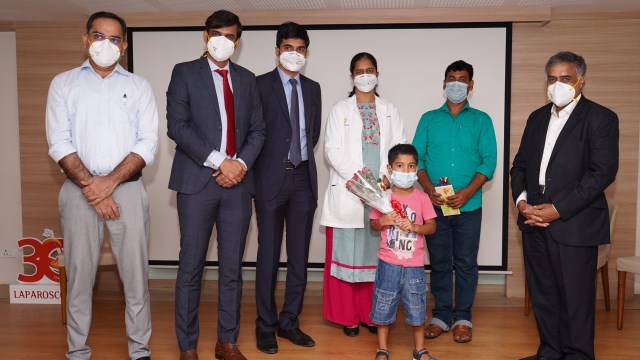In a landmark medical achievement, doctors at Krishna Maternity and Child Care Hospital, Palayamkottai, successfully performed an advanced laparoscopic pediatric surgery to treat a choledochal cyst in a 6-year-old girl — a rare and potentially life-threatening congenital condition.
This minimally invasive procedure marks a significant shift from traditional open surgeries, offering faster recovery, less post-operative pain, and reduced scarring for young patients.
A Rare, Silent Threat in Children
A choledochal cyst is an uncommon congenital abnormality where the bile duct develops a cystic dilation, blocking the normal flow of bile from the liver to the small intestine. This condition, more frequently observed in East Asia but also reported in India, can lead to serious complications like jaundice, abdominal pain, pancreatitis, liver damage, and even bile duct cancer if untreated.
Early diagnosis and intervention are crucial, particularly in children, to prevent long-term health consequences.

A Milestone in Pediatric Care
The surgery at Krishna Maternity and Child Care Hospital demonstrates how modern laparoscopic techniques are transforming pediatric care. By opting for keyhole surgery instead of an open procedure, doctors minimized trauma to the child’s body while ensuring complete removal of the cyst.
Hospital authorities confirmed that the young patient is recovering well and will be monitored for long-term health outcomes.
Redefining Pediatric Surgery Standards
Speaking about the breakthrough, the hospital’s pediatric surgical team highlighted the importance of spreading awareness about congenital conditions and the benefits of early screening. “Minimally invasive techniques are not just about faster recovery—they’re about giving children a safer, healthier future,” said one of the lead surgeons.
Medical experts believe that such interventions could become the new standard of care for pediatric gastrointestinal abnormalities across India.


